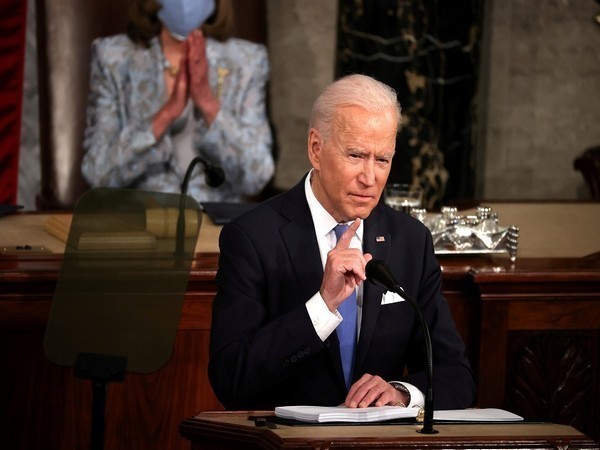World Insights: 1.2-trln-USD infrastructure law's effect on Biden's popularity remains uncertain
Nov 18, 2021
Washington (US), November 18: U.S. President Joe Biden on Monday signed into law a bipartisan 1.2-trillion-U.S.-dollar infrastructure bill after months of delay amid Democratic infighting over a social spending package.
The whole package, which contains roughly 550 billion dollars in new funding, will provide for new investments in roads, bridges and railways around the country.
The rest of the funding will stem from various sources, including 200 billion dollars that were initially meant for COVID relief but have not been spent and 50 billion dollars will come from several states' unemployment money, which has not been used.
The package includes a 65-billion-dollar investment in improving the nation's broadband infrastructure and invests tens of billions of dollars in improving the electric grid and water systems. Another 7.5 billion dollars would go towards building a nationwide network of plug-in electric vehicle chargers, according to the legislation's text.
The plan spreads the money over a half-decade period, although the legislation does not require the money to be spent within that time frame. Some projects are expected to take at least a decade before they are finished.
Experts said the law will especially impact the construction industry, and is expected to significantly boost jobs in that sector. Estimates vary, but some reports foresee an increase of 1 million jobs over a five-year period. That would also lead to indirect benefits in connected industries along the supply chain, experts have said.
Over the long run, better roads and bridges could make the transport of goods cheaper and more efficient, which would also lower prices for consumers.
The legislation could not come at a better time for Biden, who is bedeviled by multiple crises, from rapid inflation to chaos at the U.S. southern border. The president is feeling the sting in his approval numbers -- the lowest of any president in recent memory at this point in his first term, except for former President Donald Trump's.
A new Washington Post-ABC News poll found that 41 percent approve of Biden's handling of the presidency, while 53 percent disapprove, a new low for Biden.
The legislation also comes just after two major state elections in which Democrats took a shellacking -- losing the Virginia gubernatorial race to Republicans and hanging on to New Jersey's governorship by the skin of their teeth.
So far, it remains unknown whether the law will help the beleaguered president.
Christopher Galdieri, assistant professor at Saint Anselm College, told Xinhua that "if the infrastructure bill creates jobs, boosts the economy, and makes people's lives better, and does so before next fall," it might help Biden and his administration.
"But then the question is whether it helps enough to combat the historical pattern of the president's party suffering losses in midterms and new congressional maps drawn by Republican state legislatures," Galdieri said.
Brookings Institution Senior Fellow Darrell West told Xinhua that "the infrastructure bill will be a big help to Democrats because it will create jobs and also help Biden argue he has governed in a bipartisan manner."
"He got significant support from Republicans in the House and Senate and that will enable him to say he has governed as he said he would during the campaign," West said.
Clay Ramsay, a researcher at the Center for International and Security Studies at the University of Maryland, told Xinhua the first effects of the bill will come slowly.
The new funding will create hiring pressure on the construction industry and could lead to higher wages, "which might make more working-class people feel that the economy is working better for them -- no guarantee here," Ramsay said.
"If it's possible to focus on repair work in rural areas first, that might improve the political climate for Democrats in those areas," Ramsay added.
Kim Harris, an accountant in the Washington, D.C. area, told Xinhua she agrees that roads and bridges need to be upgraded, and said this would help people be more productive.
Ethan Russel, a store manager in the Washington D.C. area, told Xinhua he thinks the bill could do some good.
The U.S. Senate approved the infrastructure bill in August. Progressive House Democrats then held up the Senate-passed bill for months, demanding a vote on the larger social spending package, but eventually failed.
The U.S. House of Representatives finally approved the infrastructure bill earlier this month after progressive and moderate House Democrats agreed to take up the 1.75-trillion-dollar social spending package no later than the week of Nov. 15.
It is not clear whether both chambers of Congress have enough votes to pass the social spending package as some lawmakers become more concerned about rising inflation pressures.
Source: Xinhua








